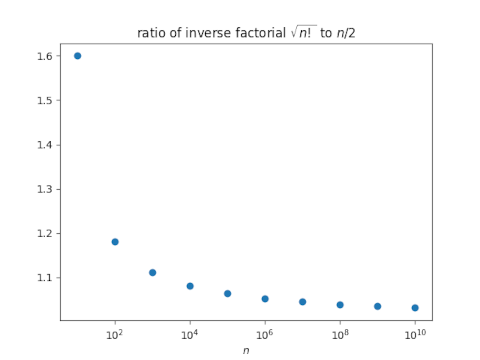What factorial is closest to the factorial of 2024?
A good guess would be 1012, based on the idea that √(n!) might be near (n/2)!.
This isn’t correct—the actual answer is 1112—but it’s not wildly off.
Could it be that (2n)! is asymptotically (n!)²?
No, Gauss’ duplication formula
![]()
shows that the ratio of (2n)! to (n!)² grows exponentially as a function of n.
However, the ratio only grows exponentially, and factorials grow faster than exponentially. I believe that the value of m minimizing
| √(n!) – m! |
asymptotically approaches n/2. In other words, the inverse factorial of √(n!) approaches n/2. And more generally the inverse factorial of (n!)1/k asymptotically approaches n/k. I haven’t written out a proof, but the plot below shows numerical evidence.

So √(n!) is not asymptotically (n/2)!, but the inverse factorial of √(n!) is asymptotically n/2.
See the next post for a way to compute inverse factorials.
The post Square root factorial first appeared on John D. Cook.